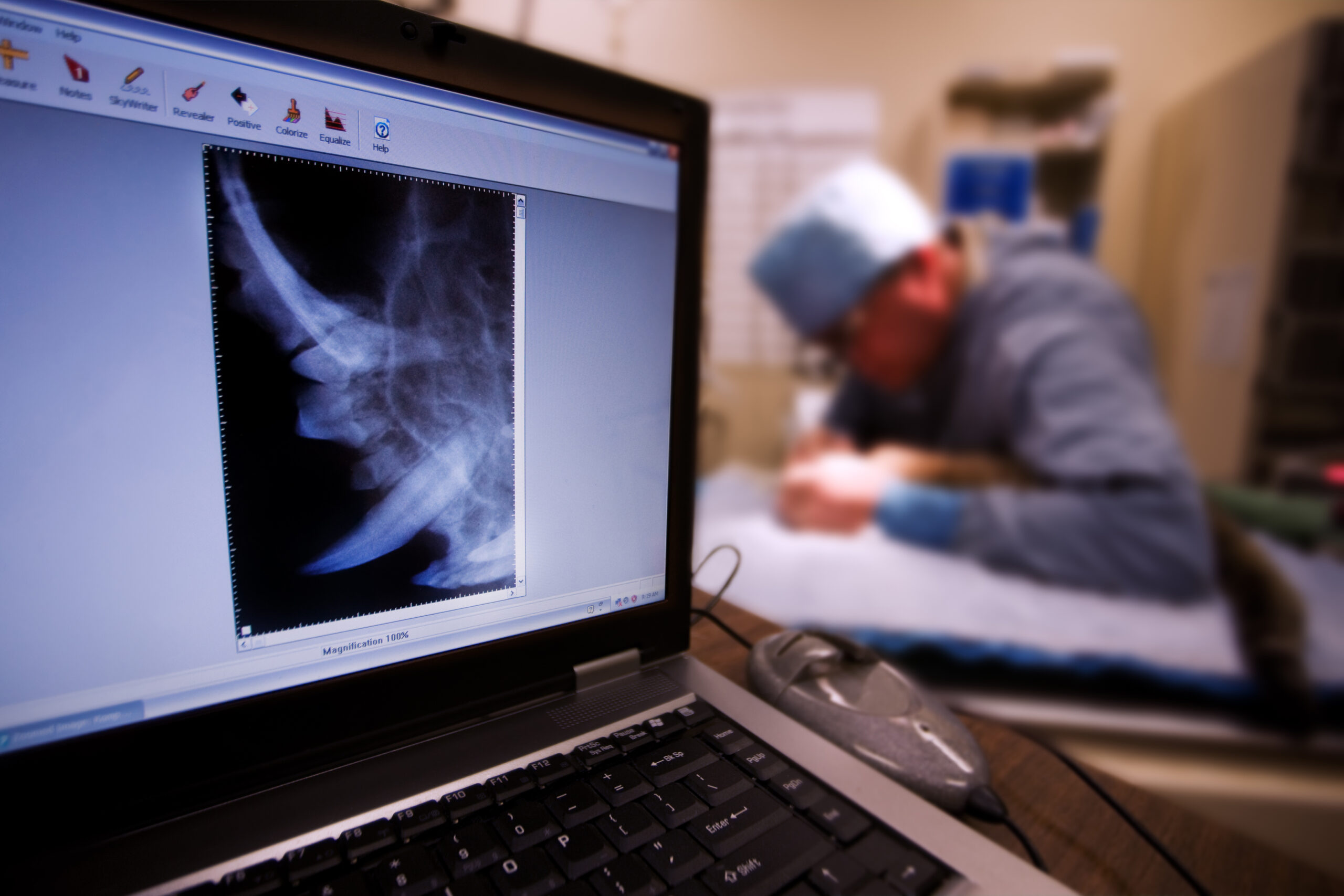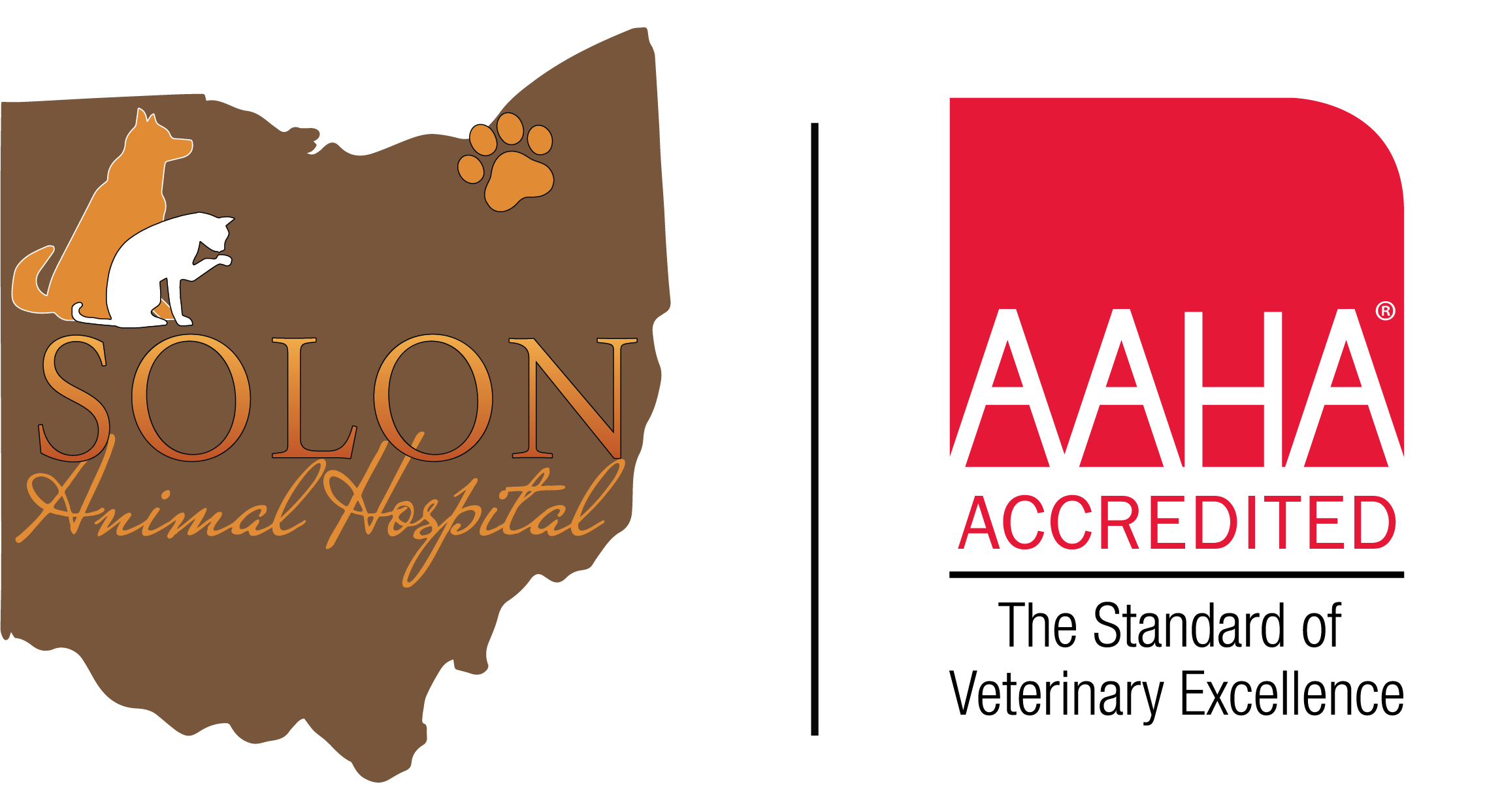
Dental Care
Every pet can benefit from dental care. Apart from annual check-ups, be on the lookout for signs indicating your pet might need dental attention sooner rather than later. These signs include reduced appetite, irritability, lethargy, swelling around the mouth, bleeding, pain, abnormal chewing, bad breath, discolored or loose teeth, extra teeth, palate defects, drooling, and more. However, pets can mask their pain, and dental issues might not be apparent at a glance.
Understanding Pet Periodontal (Dental) Disease
Pets aged three and older, lacking regular dental care, are susceptible to varying degrees of dental disease. Plaque accumulation leads to tartar formation above and below the gums, progressing to periodontal disease if left untreated. This prevalent dental condition in dogs and cats manifests as bad breath, tender and swollen gums, loose teeth, and potential complications affecting other body organs.
The Initial Oral Examination
An oral examination by our veterinarians is vital to spot any abnormalities or signs of dental problems. This assessment covers aspects like misaligned teeth, gingivitis, tartar, fractures, cavities, abscesses, and more. Based on the findings, a tailored prevention or treatment plan is devised.
The Dental Procedure
Should dental issues arise, your veterinarian will discuss the situation and recommend appropriate procedures. Additionally, we adhere to the stringent safety protocols outlined by the American Animal Hospital Association (AAHA) to ensure the utmost care for your pet. Should any dental issues arise, your veterinarian will thoroughly discuss the situation with you and recommend the most suitable and safe procedures to address your pet’s needs. We employ a comprehensive six-step protocol and prioritize safety and effectiveness:
- General anesthesia is administered to facilitate a thorough examination and cleaning.
- Constant monitoring ensures a safe experience.
- A complete dental exam, including x-rays, offers insight into internal dental health.
- Scaling above and below the gum line removes plaque and tartar, crucial for comprehensive cleaning.
- Polishing smoothens teeth surfaces to deter further plaque buildup.
- Flushing rids the mouth of debris.
- Oral surgery is considered only if an infected tooth extraction or gum issue arises.
Oral Surgery for Pets
In cases requiring oral surgery, your pet can find relief from significant discomfort. Our veterinary team resolves various oral issues, including gingival surgery, impacted tooth extractions, tumor removal, and more.
Importance of Pet Dental Care & Exams
Consistent, routine care and comprehensive examinations play a pivotal role in preventing dental issues, effectively protecting your pet’s internal organs, maintaining their breath fresh and clean, guaranteeing a pain-free oral health experience, and safeguarding the integrity of their teeth. Prioritizing your pet’s dental care not only ensures their immediate comfort but also contributes significantly to their long-term well-being, promoting a healthier and happier life for your beloved companion.
Contact Solon Animal Hospital
Are your pet’s teeth causing you some concern? Call us right away at (440) 232-8383 for an appointment to get their dental hygiene back on track or make an appointment online.
What Our Clients Are Saying
They are wonderful people. Very compassionate and understanding and they always in when it’s important. Other hospitals don’t always do that.
G. A. R.
